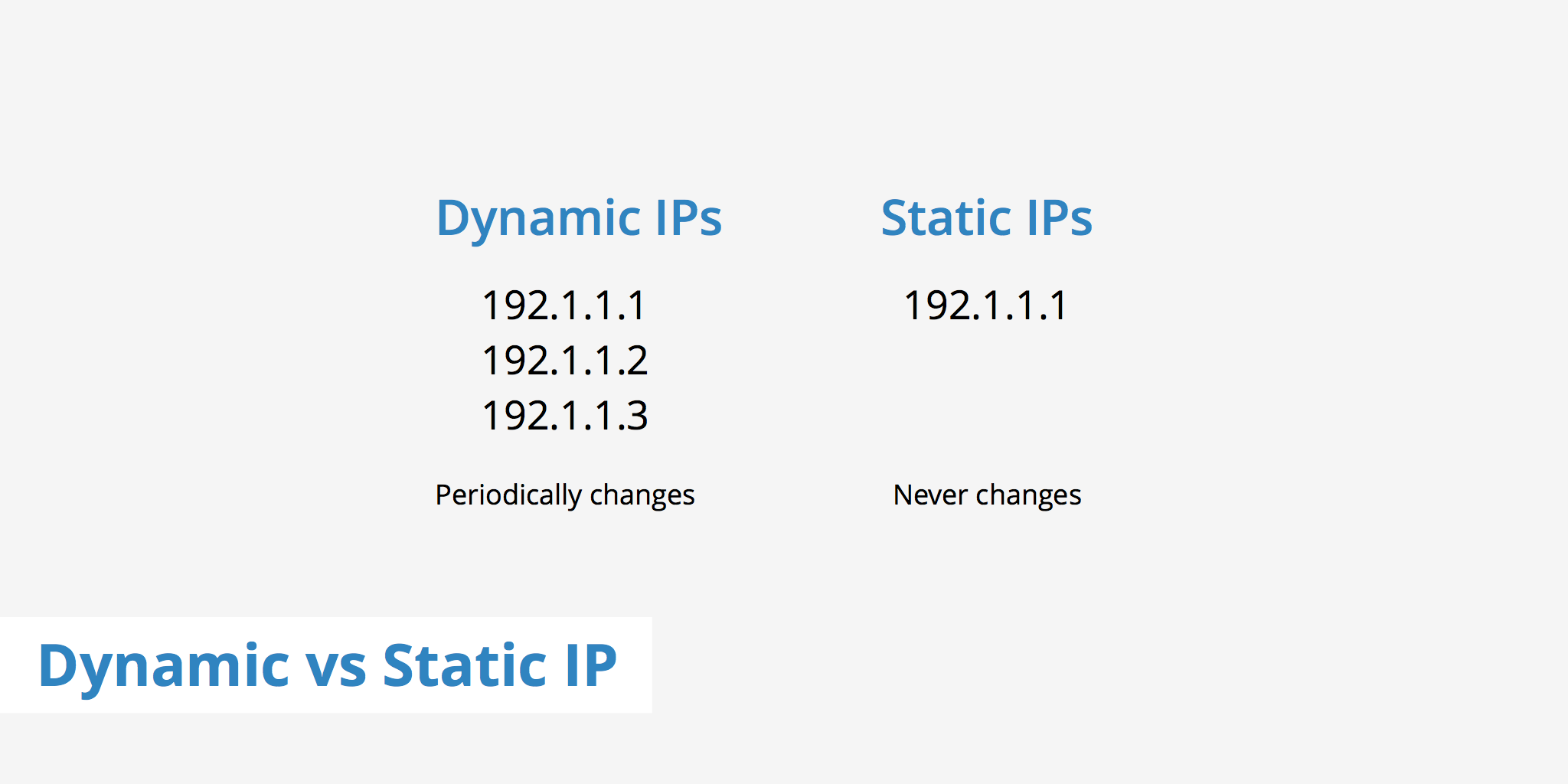Comparing a Dynamic vs Static IP

An IP address, or Internet Protocol address, is a unique identifier used to connect a device to the Internet. It allows us to distinguish one machine from another and can provide valuable information such as geographic location data, the name of the hosting provider (in the case of a website), and more. To see this in action, check out our IP location finder tool.
The landscape of IP addresses is currently shifting as IPv6 continues to grow. However, even as more Internet users make the switch from IPv4 to IPv6, dynamic and static IPs will still be relevant. This guide will cover the differences that exist between static and dynamic IPs as well as which one you should choose as a user or business.
What is a static IP?
Put simply, a static IP is an IP address that doesn't change. A static IP address remains constant regardless of whether you've restarted your machine, rebooted your router, etc. Static IPs are assigned by your ISP (Internet Service Provider) and cost an additional fee. This is because static IP users are taking that IP out of the pool of IPs which can be assigned dynamically. Therefore since it reduces the number of available IPs, an additional fee is charged.
If you're a regular home Internet user, chances are you don't need a static IP. However, if you run a web-related business providing or using services such as:
- Web hosting,
- FTP servers,
- Email servers,
- VPN servers
then you should look into acquiring a static IP address. Although it may not be absolutely required to obtain a static IP, it can make operations simpler in the event that you are whitelisting your IP for security purposes.
What is a dynamic IP?
A dynamic IP address is one that can be changed by the ISP without notice. Although sometimes dynamic IPs can be changed quite frequently, in most cases, dynamic IP address users won't experience a change for months. To the regular user, this change won't affect their day-to-day browsing. You likely won't even notice the change given you don't have any special configurations associated with your previous IP.
Dynamic IPs are the more popular option for most users as they are cheaper and for a typical user, there are no disadvantages.
Choosing a dynamic vs static IP
There are pros and cons to both dynamic and static IPs. However, choosing one over the other is based on your needs and the type of Internet user you are. Below is a list of advantages for each case.
Dynamic IP advantages
- Cheaper than static IPs
- Less maintenance required
- Reduced security implications
Static IP advantages
- IP never changes which makes it great for businesses that are heavily reliant on IP addresses
- Makes it easier for geolocation services to accurately determine where you are
Checking if you have a static or dynamic IP
Whether you're using a Windows or Mac, there are a couple of easy ways to determine whether you're currently using a static or dynamic IP.
Mac
- Open your System Preferences
- Click on Network and select "Advanced..." in the bottom right corner
- Then go to TCP/IP
- Next to "Configure IPv4" if you see "Using DHCP" then you are using a dynamic IP. Otherwise, if you see "Manually" you are using a static IP
Windows
- Open Command Prompt
- Type in
ipconfig /all - Find the "DHCP Enabled" text
- If there is a "Yes" beside it, you have a dynamic IP. If there is a "No" you have a static IP
Summary
If you aren't someone who relies heavily on a constant IP address, then there is no reason to go through the trouble and cost of acquiring one. Although dynamic IPs are susceptible to change every so often, a change in IP address typically only happens every few months. However, if you're a business that provides a service that would impact multiple customers in the event of an IP change, then acquiring one is essential.